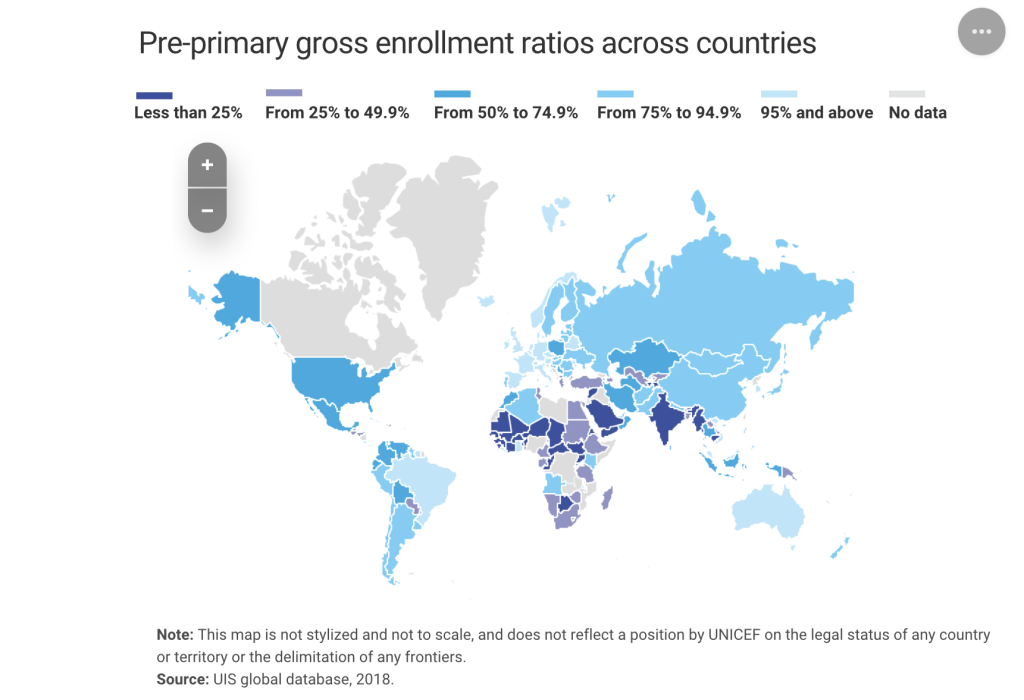
This post will discuss the relationship between early childhood education and expanding access to many more literacy programs. Learning how to read is a critical skill in early childhood development years beginning in preschool to help the child reach their full potential and become more successful in core foundational skills. The definition of phonological awareness is “one’s sensitivity to, or explicit awareness of, the phonological structure of the words in one’s language” (Torgesen, Wagner, and Rashotte, 1994). Phonological awareness is such a crucial stage in literacy development in early childhood education where literacy skills are strongly linked to a child’s future in reading success for a strong foundation of learning (Crim Hawkins, Thornton, Rosof, Copley, Thomas, 2008). Studies have shown that children who have a strong foundation in phonological awareness starting in kindergarten have an easier time reading fluently than children who do not develop this type of proficiency (Crim, Hawkins, Thornton, Rosof, Copley, Thomas, 2008).
Literacy is the foundation for reading, writing, communicating, and socializing. Early literacy is learning about sounds, words, and language (Developing Literacy, Raising Children Network, 2006-2023). Early childhood literacy focuses on the child’s development through knowledge, skills, and attitudes that help promote reading and writing development which includes oral language, to have an expressive receptive vocabulary, listening comprehension skills, the alphabetic principle which includes knowledge of the alphabet, and the ability to recognize and manipulate sounds in words as well as print awareness which involves understanding and recognition of environmental print and text features (Jones, 2021). The definition of education is “the action or process of educating or being educated” (Merriam-Webster.com). When it comes to literacy and early childhood education it is essential to start introducing books early on in a child’s life to help them to become better prepared for school and start building foundational skills to succeed in school. Incorporating literacy through play and early reading habits can help the child succeed in school and have more opportunities in adulthood.
The incorporation of early childhood literacy programs in the United States is average compared to other countries specifically low-income countries worldwide. According to UNICEF, of nearly 179 million children worldwide, nearly half are pre-primary-age children not enrolled in a pre-primary education program such as preschool (UNICEF.org). Unfortunately, in “low-income countries, only 1 in 5 children are enrolled in early childhood education programs. Even if these children have access to these early childhood education programs, poorly trained educators, overcrowded and overstimulated environments as well as the unsuitable curriculum can diminish the quality of their experience” (UNICEF.org). It is important for governments to focus on the importance of early childhood education especially among literacy programs to help the children develop their foundational skills such as reading, writing, language, and comprehension in addition to social and emotional skills in order to help them become successful individuals. Early childhood education and literacy programs will also help address Goal 4: Quality Education in the Sustainable Development Goals index. Failing to provide these types of programs to children around the world will limit the opportunities for growing and reaching their full potential.

Some things that governments around the world can start incorporating into the education systems are investments in education by supporting primary education programs, providing more training to their educators, having access to books and literacy games, and providing resources in different languages to families and educators for their children and students. Governments also need to provide access to early childhood education and literacy programs to families who are disproportionately excluded from these types of programs because of where they live and what resources they do not have access to in their area. Lastly, and most importantly, they need to commit to a universal primary education and literacy program to help young children build foundational skills that will help them succeed in secondary school and beyond.
I would like to end with two great quotes that would sum up this post, first “Let us remember: One book, One pen, One child, and One teacher can change the world” -Malala Yousafzi and finally, “There are many little ways to enlarge your child’s world. Love of books is the best of all” -Jacqueline Kennedy.
References:
- Raising Children Network. (2018, June 25). Developing literacy. Raising Children Network. https://raisingchildren.net.au/preschoolers/play-learning/literacy-reading-stories/developing-literacy
- Jones, S.D. (2021, October 20). Best Practices in Early Childhood Literacy. https://education.uconn.edu/2021/10/20/best-practices-in-early-childhood-literacy/
- Crim, C., Hawkins, J., Thornton, J., Copley, J., & Thomas, E. (2008). Early Childhood Educators’ Knowledge of Early Literacy Development 1. 17 (1). https://files.eric.ed.gov/fulltext/EJ816593.pdf
- Merriam-Webster. (2019). Definition of EDUCATION. Merriam-Webster.com. https://www.merriam-webster.com/dictionary/education
- UNICEF. (2019). Early childhood education. Unicef.org. https://www.unicef.org/education/early-childhood-education
- 10 Inspiring Quotes on International Literacy Day. (2020, December 10). Learning Time. https://learningtime.co/2020/12/10/10-inspiring-quotes-on-international-literacy-day/

